current location: Home> Central News
Central News
The 2024 Peking University Symposium on Frontiers in Agricultural and Development Economics for Young and Middle-Aged Scholars was successfully held
Release date:2024/11/12 Source: CCAP
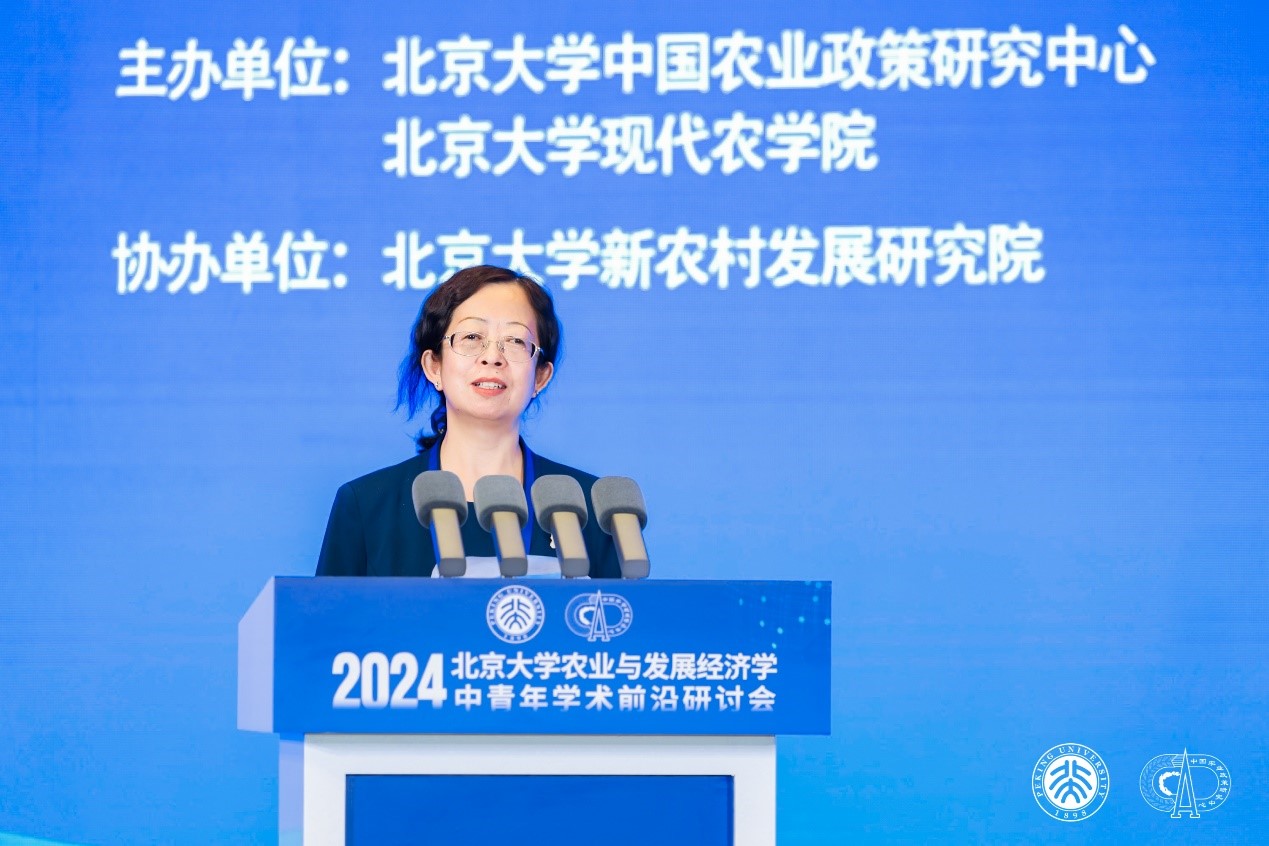
Professor Xinkai Zhu affirmed the significant importance of this symposium, noting the promising future of Peking University’s initiative to launch a symposium on the frontiers of agricultural and development economics for young and middle-aged scholars. Professor Zhu emphasized that the discipline of agricultural economics and management stands at a crossroads in this new era. He highlighted that constructing an agricultural economics and management discipline with a distinctive Chinese knowledge system is a strategic issue that young and middle-aged scholars should seriously consider.

Professor Jikun Huang introduced the reforms and development in agricultural sciences at Peking University, as well as the progress in building the agricultural economics discipline within the School of Advanced Agricultural Sciences and the China Center Agricultural Policy. He emphasized that the growth of any discipline depends on talent cultivation, with young scholars serving as the backbone of future development. The purpose of this symposium, he noted, is to provide a relaxed, equal, and open academic exchange platform for young and middle-aged scholars, thereby contributing to the innovation and advancement of the agricultural economics and management discipline.
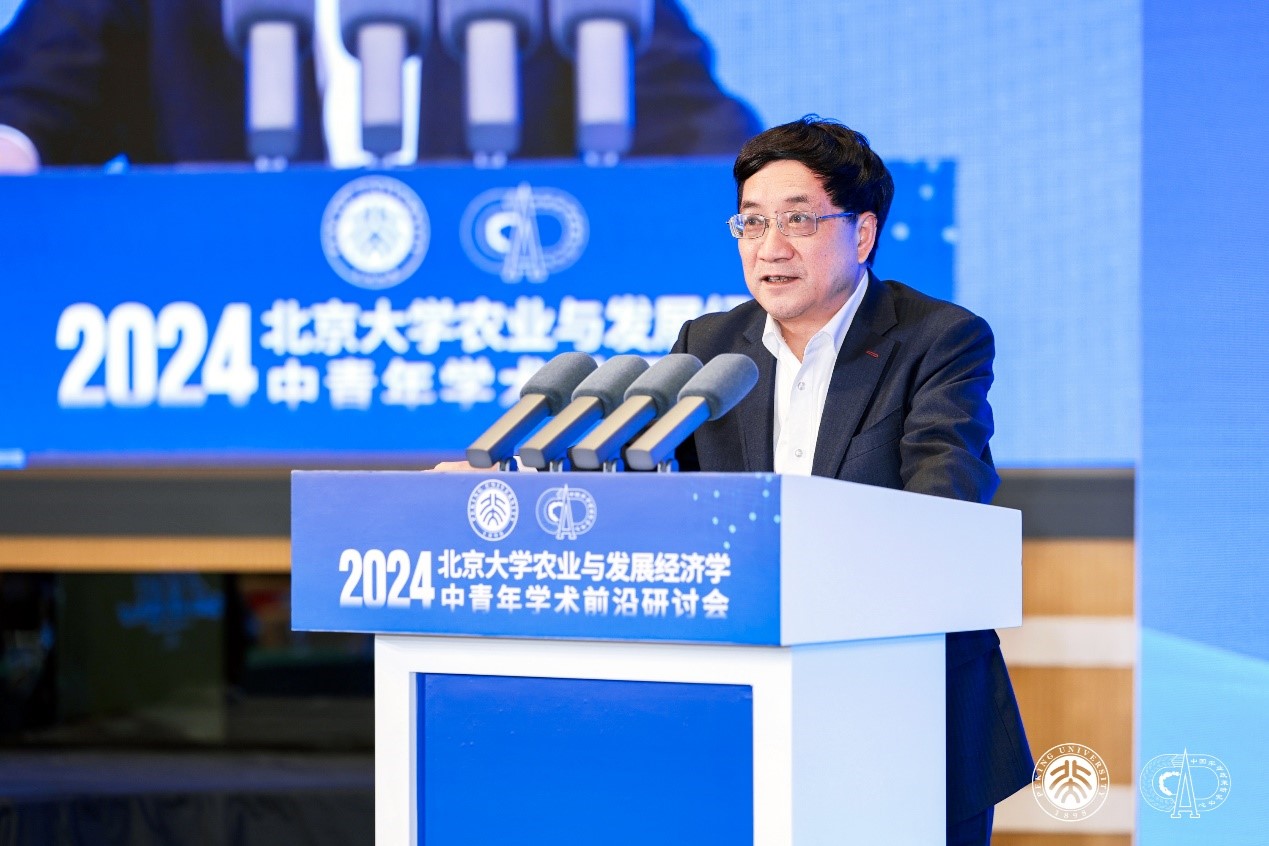
Forum 1, themed on food security, was chaired by Professor Xiaobing Wang from the School of Advanced Agricultural Sciences and researcher at the China Center Agricultural Policy, Peking University.
Professor Qing'en Gai from the Antai College of Economics and Management at Shanghai Jiao Tong University discussed the opportunity costs of increasing grain production from a food security perspective. He explored the core influencing mechanisms and the design of the most effective compensation mechanisms.
Liangliang Gao, Deputy Director of the Rural Development Institute at the Chinese Academy of Social Sciences, shared insights on building a modern grain management system. He highlighted the importance of transitioning from an agricultural management system to a grain management system, outlined a rough framework for a modern grain management system, and proposed related policy recommendations.
Assistant Professor Kaixing Huang, from the School of Advanced Agricultural Sciences and a researcher at the China Center Agricultural Policy ,Peking University, introduced the background of the agricultural Green Revolution and analyzed its impact on income disparities among developing countries since the 1960s.
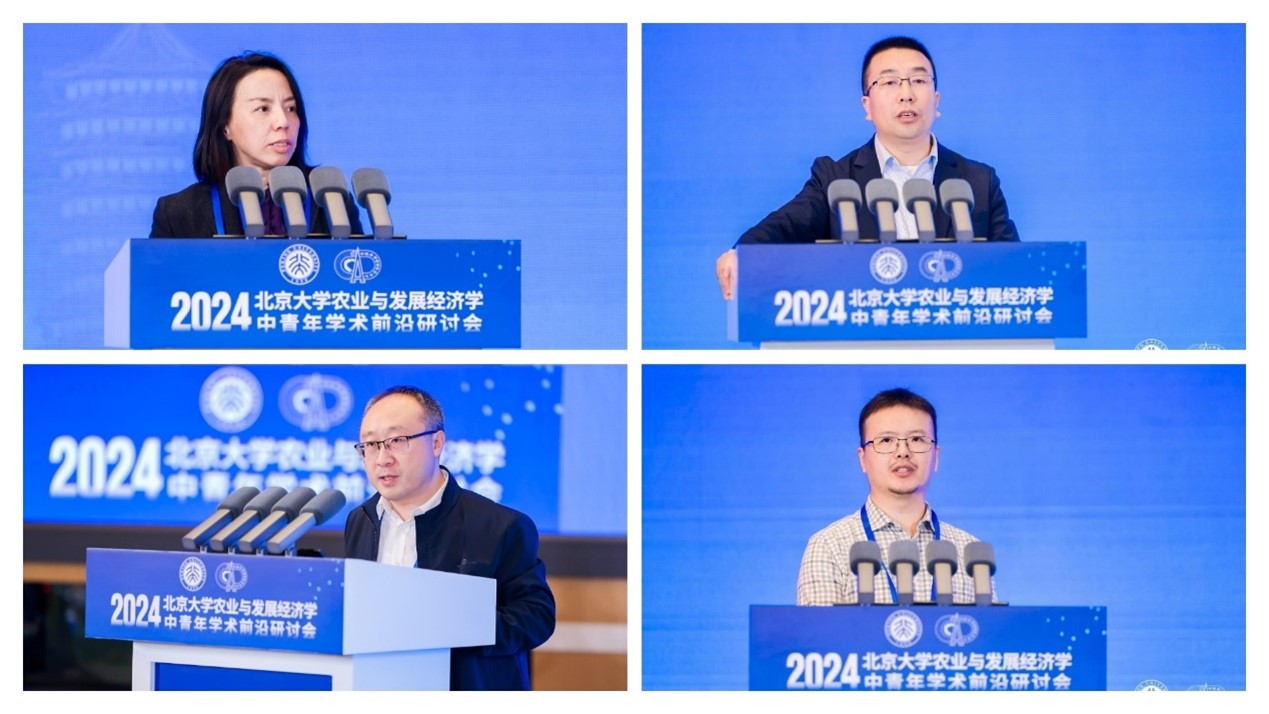
Professor Jing Zhu, Zhongshan Distinguished Professor and Director of the International Food and Agriculture Economics Research Center at Nanjing Agricultural University, along with Professor Si Wei, Dean of the College of Economics and Management at China Agricultural University, each provided insightful and in-depth commentary on the reports presented.
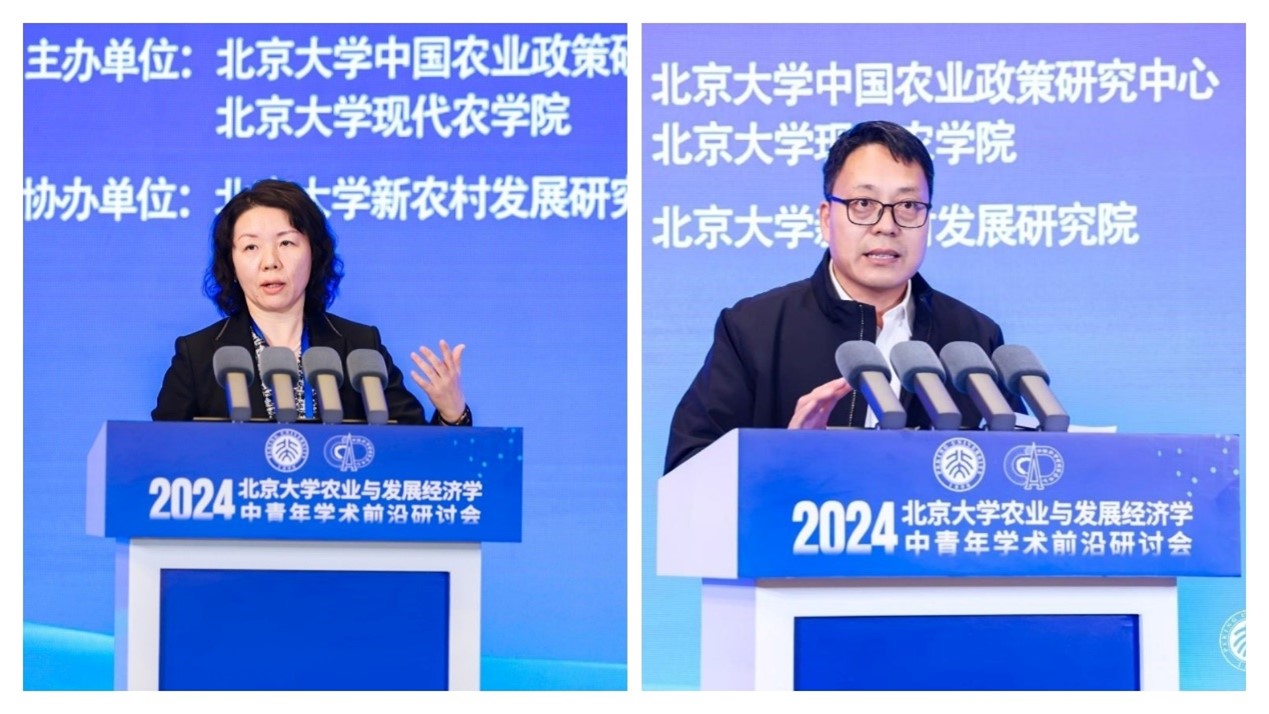
Forum 2, centered on ecological economics, was chaired by Associate Professor Lingling Hou, Deputy Director of the China Center Agricultural Policy , Peking University.
Professor Xiaohui Tian from the School of Agricultural and Rural Development at Renmin University of China analyzed the impact of photovoltaic (PV) usage on rural energy transition and household production and living conditions from a micro-level perspective, providing scientific insights for future policy formulation.
ProfessorYangjie Wang from the School of Business at Central South University addressed the challenges of smog control, emphasizing the need to clarify responsibilities for cross-regional air pollution and to improve mechanisms for cross-regional coordinated governance.
Associate Professor Xi Ji from the School of Economics at Peking University highlighted that ecological thresholds have become a rigid constraint, stressing the importance of structural optimization within sustainable limits and discussing methods for measuring welfare diversity under ecological thresholds.
Associate Professor Mengdi Liu from the School of International Trade and Economics at the University of International Business and Economics pointed out significant potential for improving environmental regulatory efficiency and examined the impact of the "double-random" inspection model on enhancing enforcement efficiency.
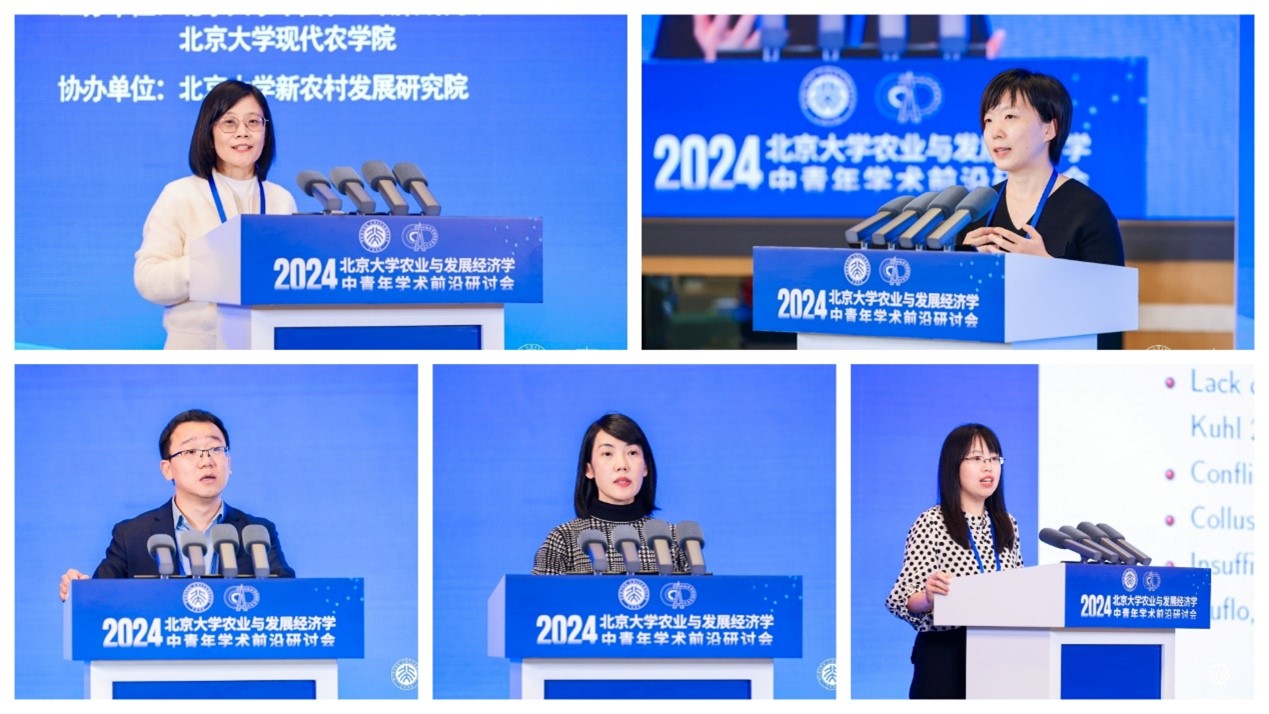
President Minjuan Zhao of Xi'an University of Finance and Economics and Professor at Northwest A&F University, along with Professor Yu Liu from the College of Urban and Environmental Sciences at Peking University, each provided insightful and in-depth commentary on the reports presented.
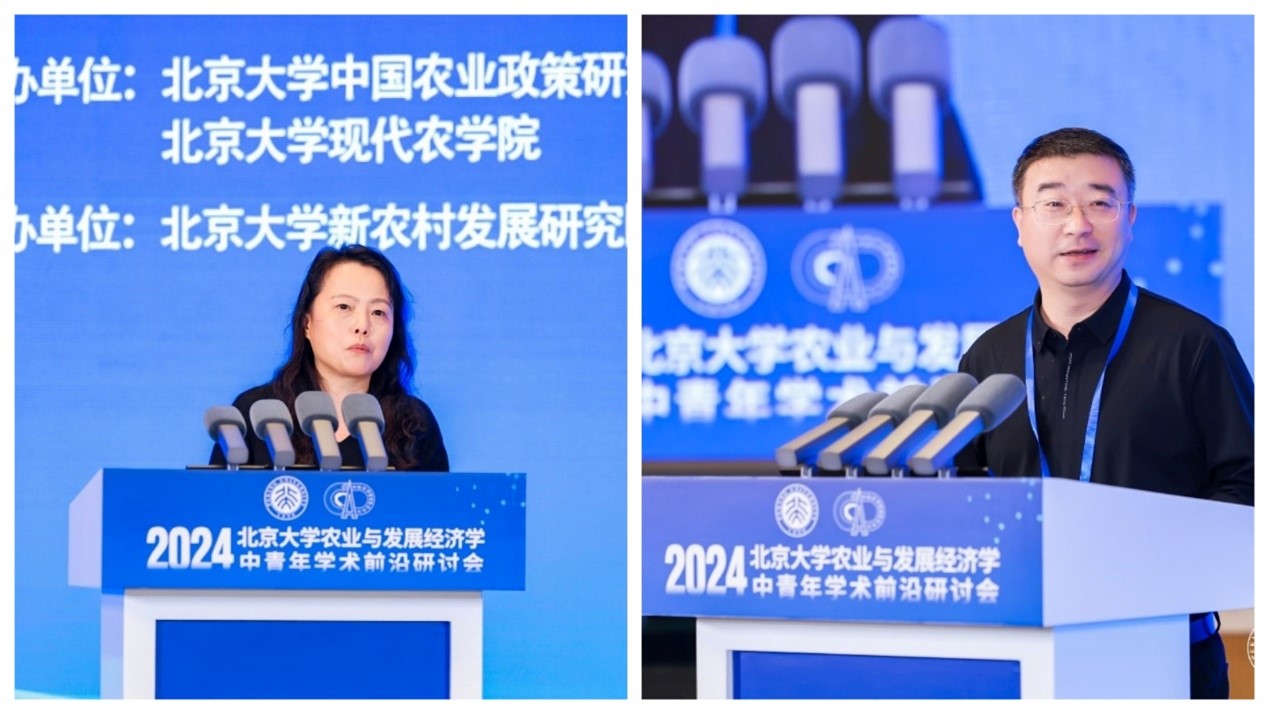
Forum 3, focused on rural development, was chaired by Professor Chengfang Liu, Deputy Dean of the School of Advanced Agricultural sciences and Deputy Director of the China Center Agricultural Policy, Peking University.
Associate Professor Sicheng Chen from the School of Public Administration at Tsinghua University discussed the impact of categorized transfer payments on rural governance performance and the potential conditions for its effectiveness, based on fiscal agricultural integration policies during the poverty alleviation period.
Professor Yu Bai from the School of Economics at Minzu University of China and Deputy Director of the Research Institute of China’s Border Development Strategy delivered a keynote report on the impact of online computer-assisted teaching on educational outcomes in underdeveloped areas, emphasizing the crucial role of technology in empowering rural education.
Professor Xu Tian from the College of Economics and Management at China Agricultural University examined the effects and mechanisms of population control policies on the decline in female labor participation in China, considering both marriage and labor markets.
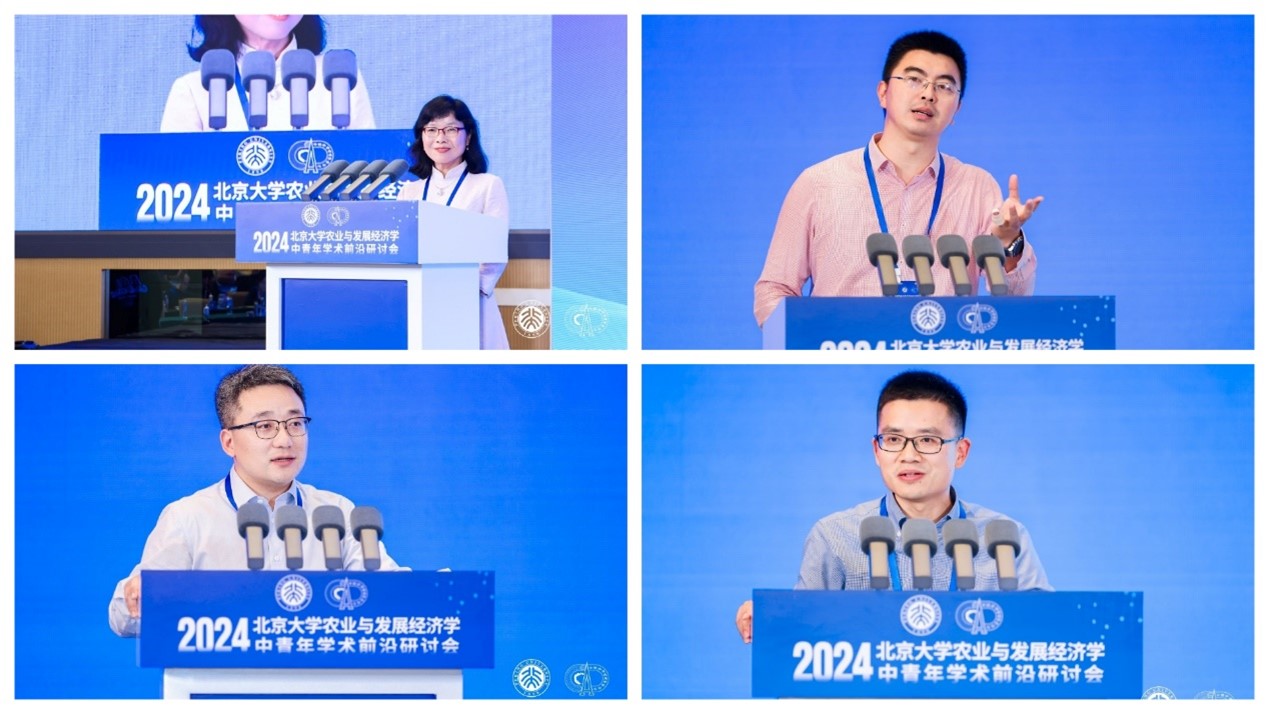
Professor Huanguang Qiu, Standing Committee Member of the Party Committee and Vice President of Liaoning University, along with Professor Mingwang Cheng, Deputy Dean of the School of Economics and Management at Tongji University, each provided insightful and in-depth commentary on the reports presented.
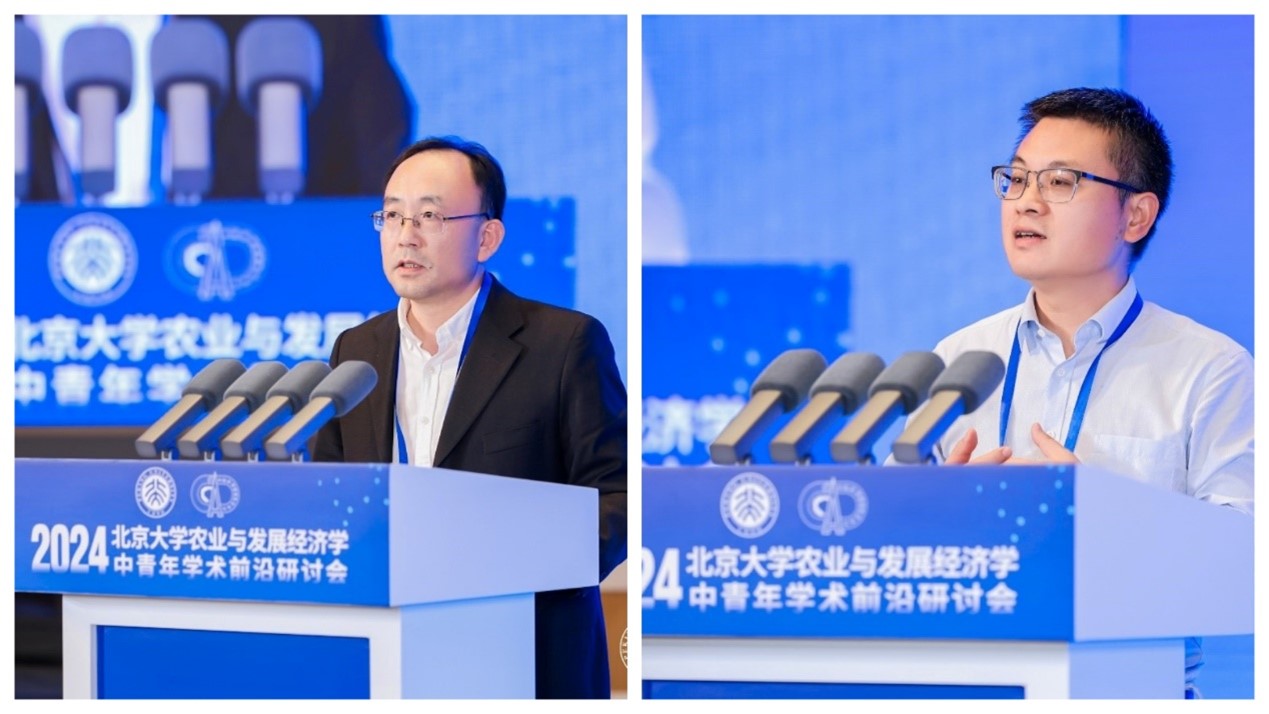
Forum 4, centered on the digital economy, was chaired by Associate Professor Wei Xie, Deputy Director of the Institute of New Rural Development ,Peking University.
Assistant Professor Jiayin Hu from the National School of Development and researcher at the Digital Finance Research Center of Peking University used Ant Forest, an initiative launched by Alipay, as a case study to illustrate how fintech, motivated by consumer altruism, positively impacts environmental protection and climate change mitigation. He emphasized the significant role of digital technology in green transformation.
Assistant Professor Yue Wangfrom the School of Advanced Agricultursl Sciences and researcher at the China Center Agricultural Policy,Peking University analyzed the impact of China’s E-Commerce in Rural Areas Demonstration Project on sellers and industrial clustering, noting the policy's considerable heterogeneity and the difficulty for high-quality sellers to stand out, indicating the effects of information friction.
Associate Professor Wen Hu from the International College at China Agricultural University discussed findings from survey data in Shouguang, Shandong, examining how adopting digital payment systems in village markets reduces transaction costs and enhances transaction efficiency.
Associate Professor Ruochen Dai from the School of Economics at the Central University of Finance and Economics compared traditional and e-commerce models in terms of production organization, analyzing how e-commerce reduces reliance on social capital and enhances labor specialization, which in turn affects entrepreneurial endeavors.
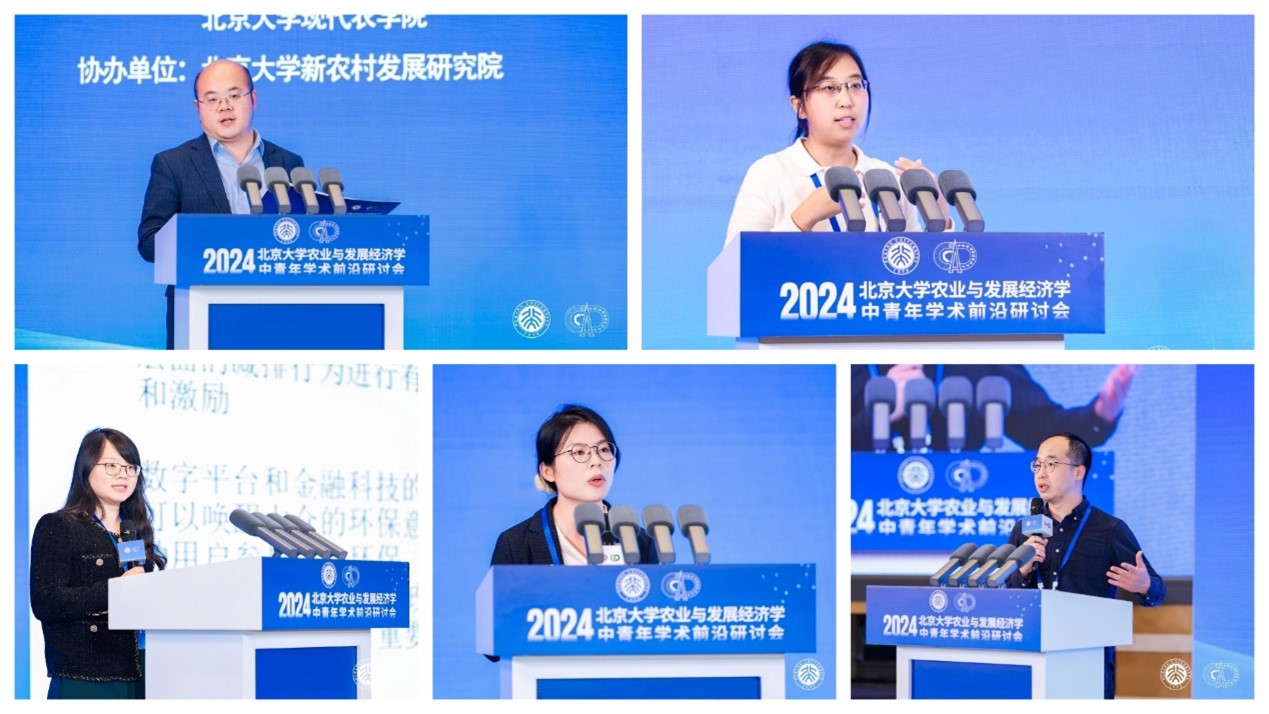
Professor Hongmei Yi, Professor at the School of Advanced Agricultural Sciences and Deputy Director of the Institute of New Rural Development, Peking University, along with Professor Jun Yang from the School of International Trade and Economics at the University of International Business and Economics, each provided insightful and in-depth commentary on the reports presented.
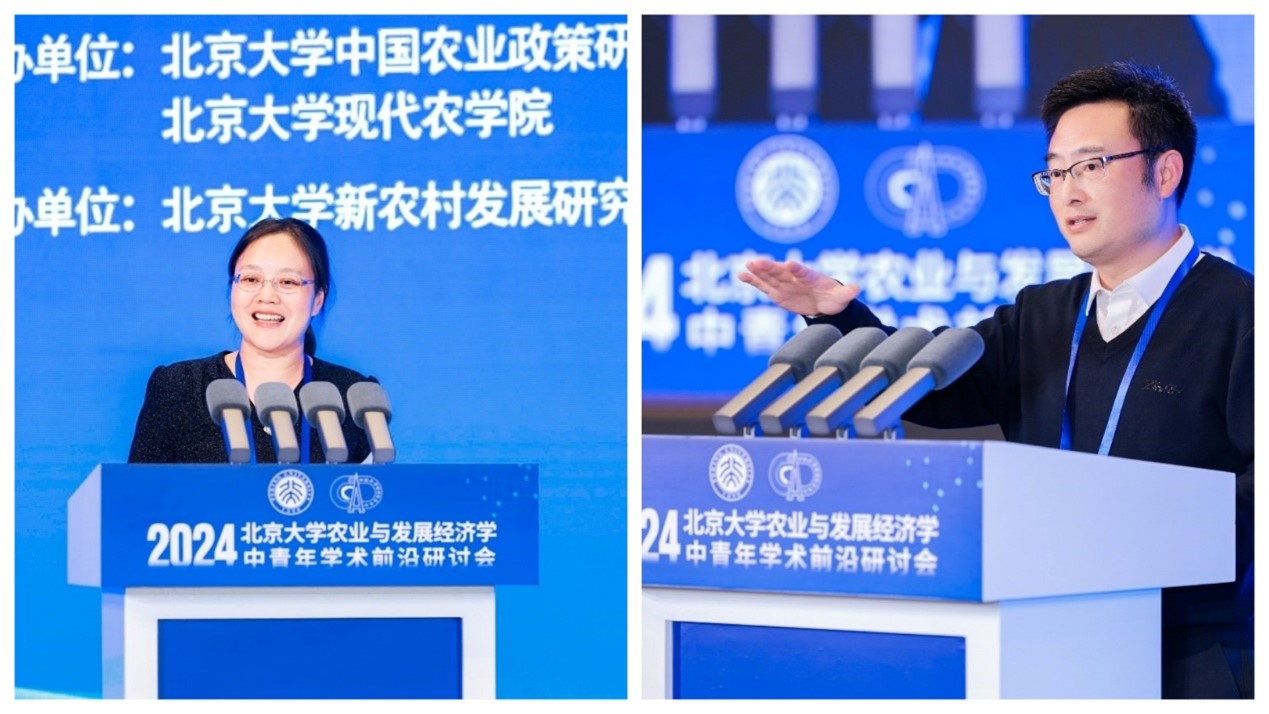
During the closing ceremony, Professor Jikun Huang expressed his hopes for young and middle-aged scholars in the field of agricultural and development economics. He emphasized that scholars need to identify and interpret issues based on practical experience and seek solutions through scientific methods. He encouraged young scholars to conduct field research in rural areas to gain a deeper understanding of real-world conditions and to propose effective policy recommendations.
Professor Jinxia Wang, representing the organizers and co-organizers, extended heartfelt thanks to all the leaders, experts, and colleagues attending both in person and online. She noted that the keynote speeches were inspiring, the commentaries were thought-provoking, and the intellectual exchanges among participants brought fresh energy to the discipline's advancement. She remarked that this symposium provided an excellent platform for young scholars and expressed hope that such collaboration would continue in everyday research work. Furthermore, she affirmed that Peking University would keep building platforms for young scholars to foster interdisciplinary cooperation and promote innovation and development in agricultural and development economics. She concluded with her hope to maintain close collaboration with all colleagues in the future, working together to drive progress and prosperity in this field.
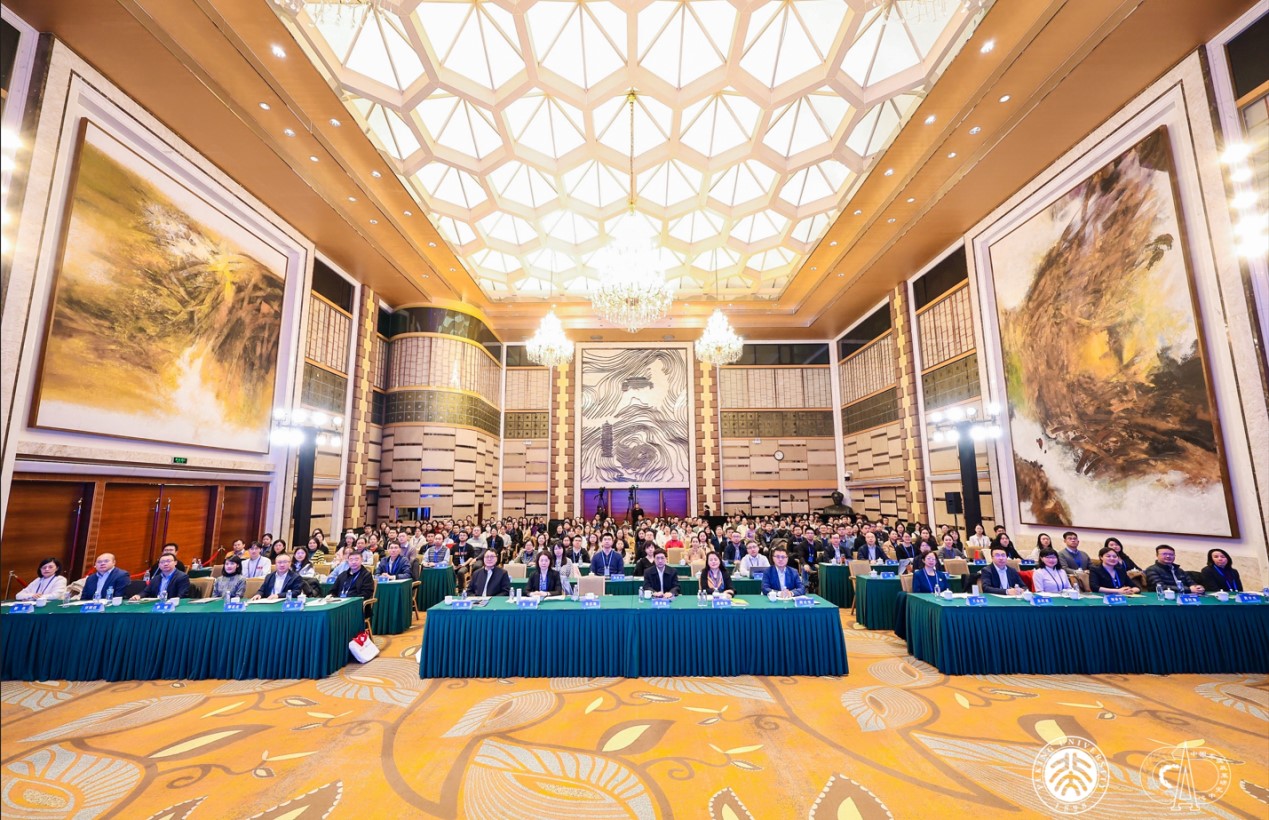



 Home
Home



